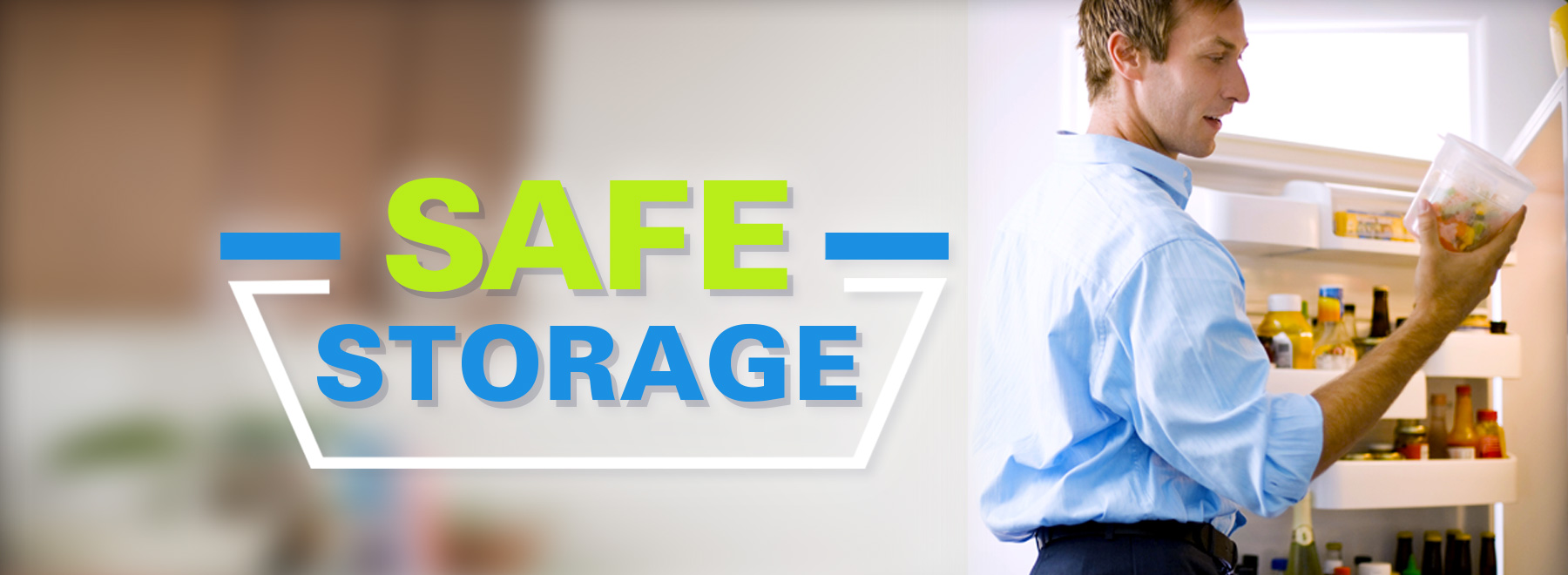Leftover liability: When (formerly) good food does bad things to good people
Throwing away leftovers may be regarded as a waste of food, but consider this: Sometimes, food can waste you.
The point was brought home earlier this year in a report about a college student in Massachusetts who was sickened after eating toxic leftovers. The lesson: Store and reheat food as if your limbs and organs, and maybe your life, depend on it.
Hospitalized with multiple organ failure, the student had to have his legs and fingers amputated. The culprit? Leftover rice and noodles.
Although he was diagnosed with a condition that is different from a foodborne illness set off by bacteria, including salmonella, his ordeal underlines the importance of treating leftovers with respect, say experts at the University of Mississippi Medical Center.

“Higher-risk foods need to be discarded fairly quickly,” said Dacia Breeden, a registered, outpatient oncology dietitian at UMMC.
“Higher-risks foods are usually high in protein and require stricter temperature control.” Chicken, beef or fish, for instance, should be thrown out within two to three days.
For cooked grain dishes, such as rice, pasta and couscous, it’s even sooner: within one to two days. Leftover rice, pasta and other foods play host to a bacterium called Bacillus cereus, which produces a toxin when heated and left out too long.

“Otherwise, a general rule of thumb is to consume properly refrigerated leftovers within three to four days,” said Dr. Elena Dent, assistant professor of preventive medicine, director of education for the Center for Integrative Health and a registered dietitian at UMMC.
“Properly refrigerated” means stored within one to two hours after the food is cooked and has sat out at room temperature. That time limit drops to no more than one hour if the outdoor temperature is above 90 degrees F.
“It is not necessary to let hot food completely cool before refrigerating,” Dent said. “Best practices include separating large volumes of food into smaller portions that can fit into shallow containers to cool. These can be placed in the refrigerator directly.”
Breeden says it’s important that the storage container is airtight and, ideally, no more than two inches deep.
Dent likes to use Ziploc bags – “I can remove the air inside and they save space,” she said. “The Styrofoam box your leftovers came in is not a great choice.”
So, how do you enjoy, and survive, the food you prepare for your Fourth of July barbecue? “Keep hot foods hot (140°F. or above) by using chafing dishes, a crockpot or other slow cooker; and cold foods cold (40 degrees F. or below) by serving them on top of bowls of ice, or serve smaller portions that you swap out often,” Dent said.
“If perishable foods are not kept at or below 40°F., and at or above 140°F., toss them. I’m thinking of those deviled eggs we enjoy around Easter: Those should be kept at 40°F. or below and cooled within two hours after serving, or even one hour if it’s a hot Mississippi day.”
As for frozen leftovers, consume them within three to four months, Dent said.
“But all of those numbers are dependent upon many factors. Is your refrigerator kept at or below 40 degrees F.? Is your freezer at 0°F.?
“What type of container are your leftovers stored in? An airtight bag or container is best to keep harmful bacteria from getting in and helping leftovers retain moisture. Are you thawing leftovers properly?
“Also, please don’t store leftovers in your fridge door, which is the warmest spot in your refrigerator. That’s fine for most condiments, but not for leftovers, milk or eggs.”
Visible signs of spoilage may be absent, Breeden said. “But the bacteria count may already be considerably high, and it’s not worth the risk. Any leftovers with raw foods, such as sushi, should not be kept more than one day.”
Other high-risk foods are dairy produce (custards, molded cheese), egg products (mousse, home-made ice cream) and seafood (raw oysters, cooked prawns), Breeden said.
Low-risk foods can be kept longer and include bread, biscuits, cereals, and those that have been preserved, pickled or fermented, as well as foods high in sugar or fat.
“Typically, acidic foods, like a tomato sauce, will keep for up to one week in the fridge,” Dent said.
Frozen leftovers, after thawing, are good for one to two days, Breeden said. “Be sure to reheat appropriately.” For that, there is a magic number in degrees Fahrenheit: 165. Keep a food thermometer handy, Breeden said.
Reheating in the oven, as opposed to the microwave, ensures even heating and is highly recommended, Breeden said.
But if you do use a microwave, covering the leftovers while reheating can help kill harmful bacteria, Dent said.
As for sauces, soups or gravies, bring them to a rolling boil.
Food contamination – from raw food products, such as meat and poultry – is also a danger, but one that Breeden and Dent say can be avoided if you follow a four-step rule:
- Clean: Wash your hands and clean your cooking and prep areas.
- Separate: Keep raw animal foods apart from ready-to-eat foods.
- Cook: Prepare food at the correct internal temperature to kill harmful bacteria. Consult this chart.
- Chill: Leave cooked food out no more than two hours at room temperature, and chill as soon as possible at 40 degrees F. or below.
Even if food is prepared and stored properly, some people have an increased risk of becoming ill after consuming it. They are:
- Pregnant women
- Children under age 5
- Patients with a diagnosis of cancer or HIV/AIDS or other immune-compromising disease
- Adults aged 65 and older
“If someone would have been put on a safety boat first during the sinking of the Titanic, they are the ones more likely to experience serious illness,” Dent said.
In general, they have a compromised or weaker immune system, Breeden said. “I work with immune-compromised cancer patients daily at our clinic, and we often have discussions on how much more important food safety is for them.
“This includes paying extra attention to food safety precautions and possibly avoiding leftovers all together if their risk is extremely high.”
If you do become sick after eating contaminated food, the symptoms will often be “flu-like – nausea, vomiting, diarrhea, fever,” Dent said.
“The onset can occur within minutes of consumption – or even up to a few weeks. If you are immune-compromised, pregnant, elderly, or aren’t old enough to see a PG-13 movie, seek medical attention immediately.”
Even if you don’t fall within one of the at-risk groups, seek medical attention anyway, if symptoms continue.
“I know we all want to be mindful of not wasting our food these days, especially with rising food prices,” Breeden said. “But it is much better to waste a little food than to suffer the ill effects of food poisoning.
“So keep your food safe, but always keep your body even safer when it comes to eating leftovers.”
The above article appears in CONSULT, UMMC’s monthly e-newsletter sharing news about cutting-edge clinical and health science education advances and innovative biomedical research at the Medical Center and giving you tips and suggestions on how you and the people you love can live a healthier life. Click here and enter your email address to receive CONSULT free of charge. You may cancel at any time.



